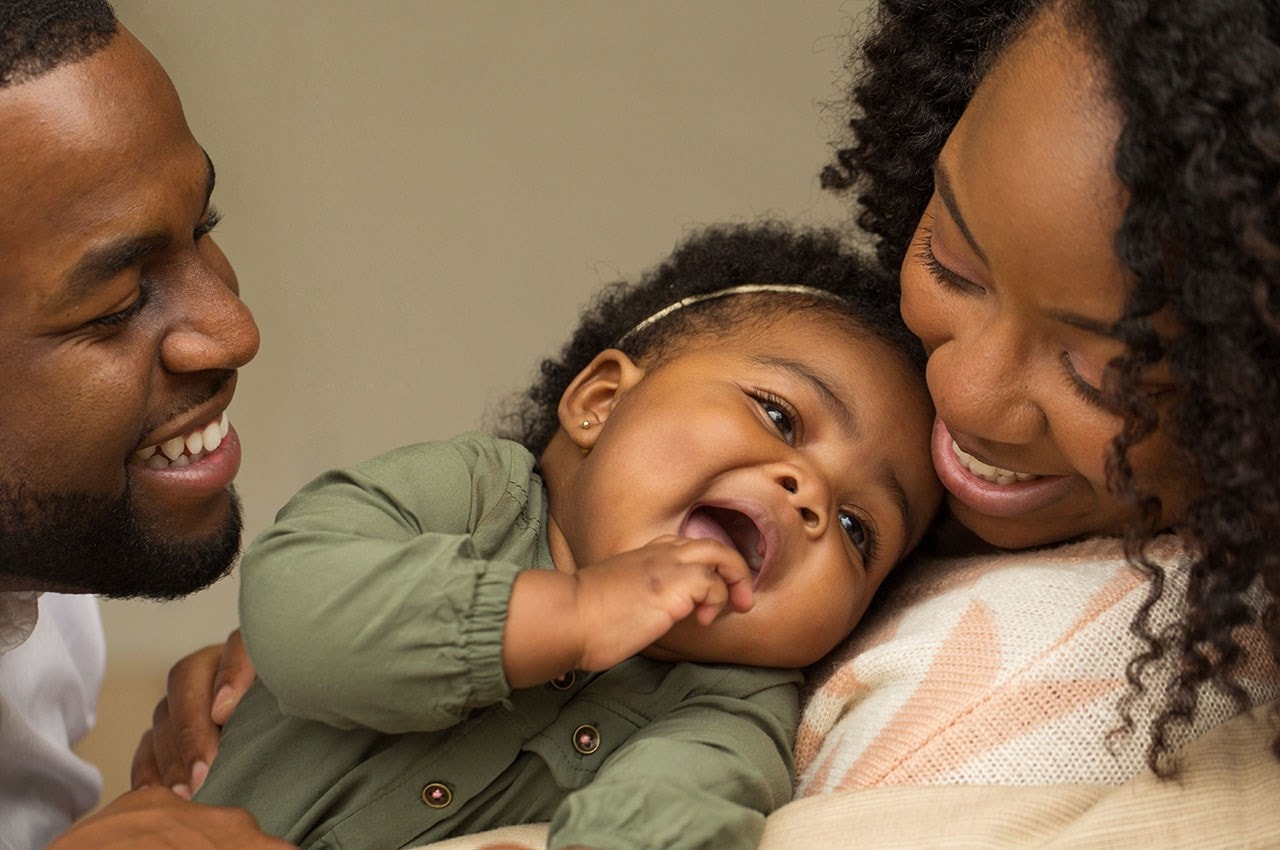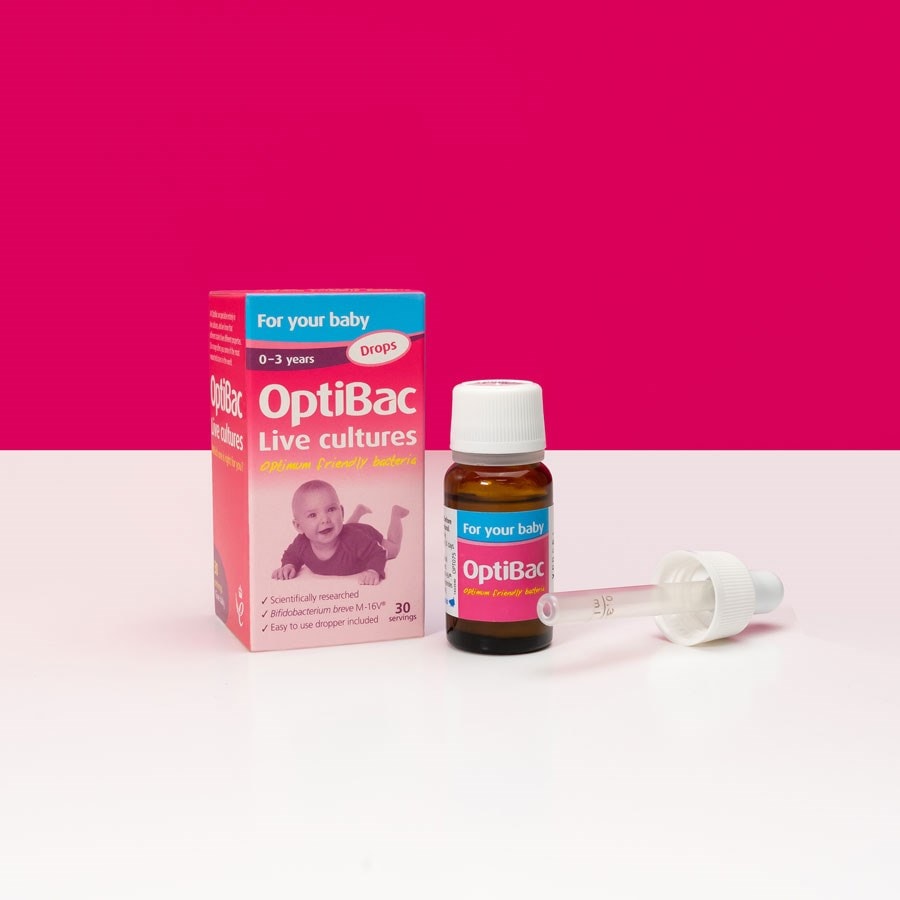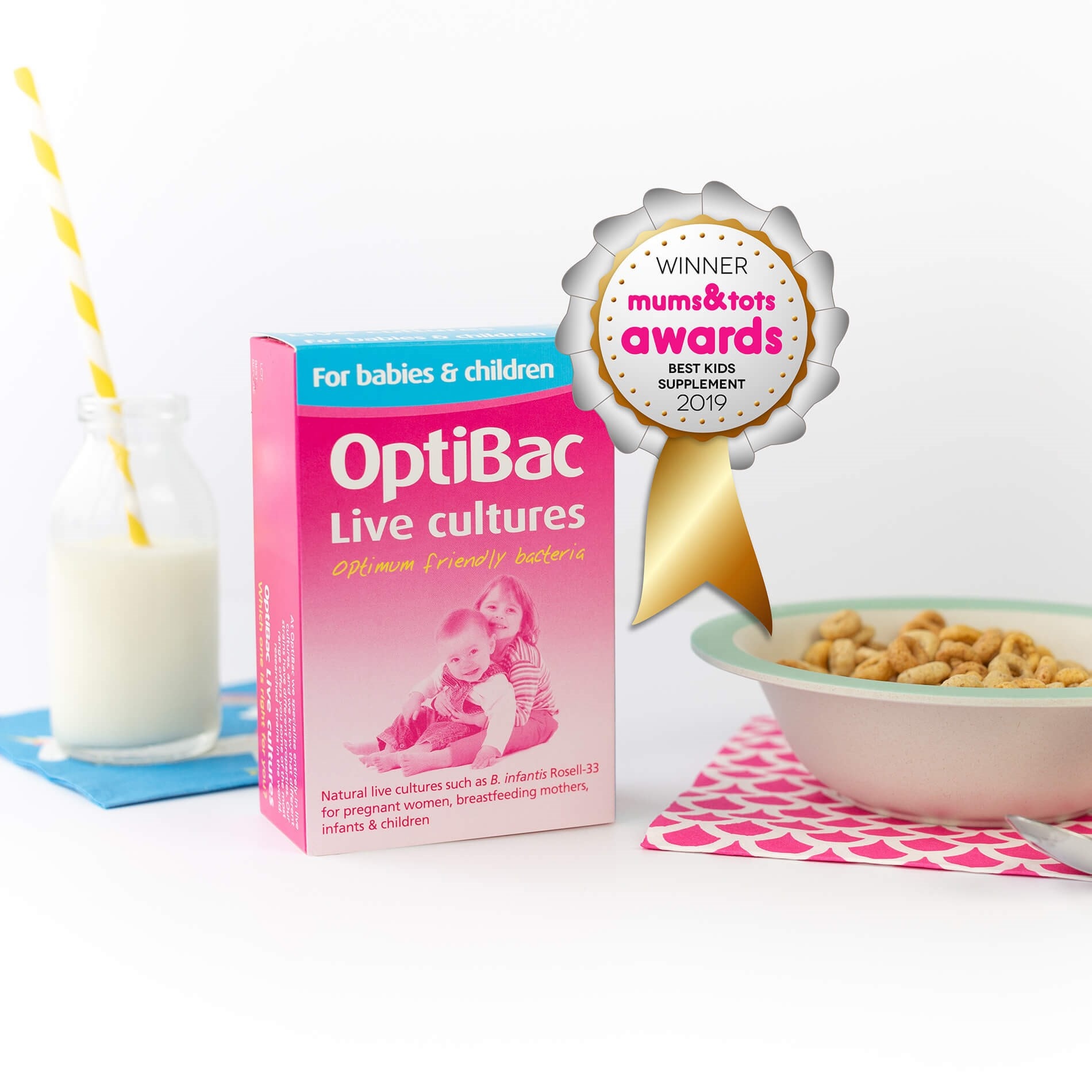- About Us
-
Help
Free 1:1 supplement advice
Not sure which supplement is right for you? Book a free, 15 minute telephone call with one of our nutritional experts.
Book your free consultationGet in touch (Mon to Fri, 9am - 5pm)
Customer Service: +44 (0) 1264 339 770
Order Enquiries: +44 (0) 1264 363 193
Contact us - Stockists
You are on the UK site
Hello US customer, you are currently shopping on the UK site. To ensure you are charged in the correct currency and receive accurate shipping costs, please switch to the US website and re-add your product to your basket.
You're away from FREE UK delivery Free UK delivery (applied at checkout) on orders over £10.00
You have qualified for Free UK delivery
Health News
Healthy Parenting Tips for New Mums
Early parenthood is full of wonder, laughter and surprises – but it can also present some challenges. Every parent will face some difficulties and your situation may differ hugely from others around you. However, one thing that does unite parents the world over is wanting what’s best for your child. So, we’ve teamed up with perinatal coach Nicola Flanagan to offer some tips to new Mums, to help make your journey a little bit smoother. And whilst today’s blog is focused on mums, we will be sharing more tips soon for both mums & dads, too!
About Nicola
Nicola Flanagan is the founder of Me And My Baby Limited (MAMBA). She has a degree in Human Bioscience and is a FEDANT (Federation of Antenatal Educators) registered Antenatal Teacher, Perinatal Educator and Perinatal Mental Health Practitioner. She has also studied embryology, anatomy, physiology, immunology and microbiology as well as infant development and primary education. Her extensive knowledge and experience encompasses all areas of maternal and child health. Nicola is Mum to three little boys aged three, four and seven, so really understands the more hands-on elements to parenthood, too. Her key focus through MAMBA is on supporting new and expectant parents prepare for and settle into their life with a baby.
Nicola’s top tips
Whilst every family is unique, there are some common anxieties and issues faced by new parents. Nicola has put together some expert advice to focus your mind on what’s really important and to reassure you that ’normal’ is a very broad field when it comes to life with a newborn. Everyone’s experience is different.
It is important to acknowledge that with the rise of social media's influence over parenting, you may find that the reality of early parenthood doesn’t quite match the expectations set by influencers (and even friends) online. However, what you see online is not representative of parenthood as a whole. Everyone will have good days and bad days – but you won’t see the bad days on Instagram.

Take care of yourself, so you can take care of baby
This is perhaps the most important thing to remember, but the first thing to get lost in the early days of endless feeding, nappy changing and broken sleep.
Nicola shared a quote with us from a card her husband gave to her:
To the world you are just one person but to one person you are the world.
It’s okay to be selfish sometimes and to say no to external influences so that you can prioritise what is best for you and your new family. Say no thank you to visitors if needed and take a pass on other people’s suggestions and advice if it doesn’t feel right for you. Trust in your own instincts and allow yourself to follow them. You need to be putting yourself first for a while in order to give of yourself to your new baby. Granted, you may still be a rather tired version of your old self even following this advice, but that’s all part of the experience.

Be smart with social media
Social media has two faces. On the one hand, there are some incredible social support groups and communities available 24/7 when you need them at 2am. On the other hand, there is the tendency to feel like you are failing when endlessly perusing the picture-perfect lifestyles people appear to lead online. It’s important to filter your social media for more supportive groups, led by those with the appropriate skills and experience to nurture your mind and bolster your confidence. Spend some time filtering those you follow, and find a your online ‘mum tribe’.
Prepare for the ‘fourth trimester’
There is such a thing as the fourth trimester of matressence - this is the 12 weeks after your baby is born. This is a time of huge physical and emotional change for you, your baby and your family. The last thing on your mind should be the pressure to ‘snap back to your old self’. Having a new baby changes who you are, both chemically and emotionally - you’ll never be ‘your old self’ again, but why would you want to be. When a baby is born, a woman is also reborn - change is normal and should be celebrated. Your aim should be to be a healthy and emotionally well version of your new self and to focus on building your confidence as a new mum. Any physiotherapist or postnatally qualified fitness instructor would agree that putting your body through any sort of strenuous workout or stress before everything has had a change to heal and strengthen has potentially damaging consequences for the long term. There is plenty of time. The old phrase ‘it takes 9 months to grow a baby, and 9 months to recover’ certainly holds true in this regard. Even though it’s actually more like 10 months!
Get lots of skin-to-skin contact
Spend as much time as you can skin-to-skin with your baby. It is hugely beneficial in helping you to bond, it reduces stress for your baby and it helps to establish breastfeeding1. Moreover, it also helps your baby’s microbiome flourish. Did you know that the microbiome you share through birth and skin-to-skin with your baby is partially the same microbiome passed down to you by your own mother? Our immune system is programmed and strengthened by our gut flora, which is established when a baby licks and swallows good bacteria both during the birth process and subsequent skin-to-skin with close family members (from the same household given the current situation).
Put your baby ‘down’ in stages
Newborns do not like to be put down. Fact. It’s a primitive instinct for babies to relax when being held or carried. So why would they want to be put down? For the best chance of putting the baby ‘down’, aim for 15-20 minutes after they fall asleep in your arms. This is because they will have moved into a deeper part of their sleep cycle by then. Earlier attempts mean you might have to resettle them and start the timer again, which may lead to frustration (especially when you are desperate for the loo or to lay down and sleep yourself).
Don’t be concerned about regression
Babies need to regress to progress. Infant development does not occur in a linear manner – anyone who has been through the four-month sleep regression stage can tell you that. Periods of regression are normal when your little one’s brain is developing. It is because the world that they woke up in today is different to the one they were in yesterday - they grew new neural pathways and so everything now seems strange and frightening again. Try not to get too anxious about what your baby should be doing and see the regression simply as a transition into progression. Regressions usually last about two to three weeks, so there is a light at the end of the tunnel!

Don’t compare your baby to anyone else’s baby
Every infant comes with their own unique personality and set of needs. Nobody knows your baby better than you, so trust your own instincts. If something doesn’t seem right then talk to a professional. However, if it feels right for you and your baby then it’s probably perfectly normal, even if it’s different to what friends or family members are experiencing.
Prioritise sleep (as much as possible)
It’s a myth that tiredness can kill new parents. But you might be feeling anxious about getting run-down and ill, which is completely understandable. However, good quality rest can be as restorative as sleep. Try not to worry if you have had a string of sleepless nights or weeks - your baby clearly l needs more reassurance from you at this time. It will pass, but in the meantime try adjusting your other social expectations to enable you to rest more, and try to find pockets of time in every day for yourself.
Stretch!
Holding and feeding newborns can cause strain to your postural muscles, especially those in the neck and shoulders. Try to sit upright and introduce and get some support with different feeding positions if breastfeeding. Some gentle stretches especially around your neck and shoulders during the day will really help - or even better, treat yourself to a massage, many therapists will even come to your home (once social distancing measures have been lifted)! This will prevent you experiencing neck and back pain which can make the demands of parenting 24/7 even more difficult.
Treat yourself to a pretty thermal mug…
…otherwise you are never going to get a hot cup of tea or coffee. As much as you may try to schedule in a break, things don’t always go according to plan. You’re probably no stranger to endless cups of tea gone cold on the side. Investing in a thermal mug means your little breaktime is ready whenever you are. Nothing is worse for morale than a cold cup of tea, and one should really draw the line after the third time it’s been in the microwave!
Remember: it’s okay not to be okay
This has become quite a common phrase, but it really is true. Most new mums experience bumps in the road on their journey into motherhood. These bumps, combined with the strange hormonal concoctions coursing through your system, can make motherhood overwhelming at times. There’s no shame in needing a bit of support – ‘it takes a village’ as some wise woman once said but sadly we don’t live how we used to with grandparents and aunts popping in all the time to offer help. Many of us live far from our closest friends and family. It’s okay to reach out for help - ask and it will come.
Even in these uncertain times there are amazing online support networks, professionals, helplines and peer supporters there to listen. They can help guide you back to a place of confidence. Don’t be afraid to lean on friends and family, too – that’s what love is all about.
Every parent’s journey is different, and what works for someone else might not work for you. You will find the right solutions for you and your family as the days and weeks go by, there is no right way or wrong way - just lots of helpful places to source ideas from to make your own way.
Here are a few more tips to help your transition into motherhood be as enjoyable as possible.
12 quick tips for you
- Your birth plan might not work out as you expected – but that’s okay. Try and have a plan B (and C, and D, …) just in case. Investing in good evidence based antenatal education is vital in understanding your choices so you can navigate them on the big day.
- Ask a friend on a similar budget for product tips, and their favourite ‘dos and don'ts’, and don’t be fooled by all the baby marketing. Babies actually need very little in those early days.
- Remember: the day you give birth doesn’t have to feel like the best day of your life. There isn’t always a sudden rush of love, especially if you have had a difficult birth, and being a mum may not feel like the most natural thing in the world to you – but don’t worry, it will come.
- Friendships can change when you have children, especially if you’re now in a different stage of life to your friends. Accept this new dynamic between you and find ways to continue to connect with your friends.
- Be kind to yourself and try and make time every day to take a shower, drink plenty of water, eat healthy foods (even if just grabbable snacks on the go), have a break away from your baby and connect with friends and family.
- Be aware of the changes taking place in your body- whether you are breastfeeding, losing your hair (it’s totally normal!) or finding you can reach your toes again - there is a lot going on right now. How you feel in the first few days postpartum can be quite frightening, but don’t worry - you will feel much more in balance within a fortnight and things really do heal quickly.
- If you are breastfeeding, look out for any signs of nipple damage that would suggest you need some support. Poor attachment and positioning are often the cause of sore nipples, but tongue-tie, mastitis or thrush are also common culprits. The sooner you speak to a breastfeeding advisor the better!
- Forget about the housework - the tidy houses you see online are just not an achievable reality for most people, and that’s okay.
- Don’t be ashamed of your body - it has grown and carried your baby and deserves to be celebrated for the miracle that it has created. ‘Losing the baby weight’ should be the least of your concerns.
- Fill the fridge and freezer with homemade meals before the baby arrives, so you have your favourite healthy meals on hand for those nights when you can’t face cooking.
- Don’t feel under any pressure to return to your sex-life with your partner. Your body has been through a lot, and your hormones may well supress your libido (especially if breastfeeding). Partners should understand and respect that, and this part of your relationship will return when it’s right for both of you.
5 quick tips for your baby
- Newborns feed often, and should be fed on demand. Human breastmilk contains 1.2g of protein per 100ml of milk which is significantly less than mammals who feed on a 3 - 4 hour schedule. Look for your baby’s early hunger cues (stirring, head turning, hands to mouth, poking tongue out etc) and offer them either the breast or a bottle before they become agitated. A newborn’s tummy is also the size of a cherry, and can only hold 5-7ml those first few days, rising to between 80-150ml by the end of the first month. No wonder they feed often! The thing that matters most is getting your baby fed - other things can come later.
- Check your baby’s temperature regularly to keep an eye out for any illnesses. Speak to your midwife/health visitor/GP if you have any concerns.
- Try and keep track of when baby eats, sleeps, has a wet or dirty nappy. Soon you will notice patterns emerging and will be able to spot if anything seems not quite right.
- Consider investing in a sling so you can keep your baby close if they like to be held lots of the time, this will enable you some hand free time. Follow the TICKS guidance for baby carrying in a sling, or visit your local sling library for help with types of carriers, slings and fittings.
- Every baby is different, so listen to what YOUR baby is telling you. Learn to read their cues.
5 quick tips for both of you
- Older babies and children thrive on the safety and reassurance of routine, and it can make parenting easier too. As your baby gets older and is more alert and wanting to interact, they will start to develop more predictable periods of wakefulness and sleep. But bear in mind that a baby doesn’t develop a circadian rhythm until about 4 months, so to them life is a 24-hour cycle, not 12 hours of day and 12 hours of night. Do not expect them to develop any sort of routine until after this time. In the early weeks and months just focus on building trust and attachment with your baby through responding to their needs and introducing micro-routines for different parts of your day - such as songs you sing, phrases you use when picking them up, and interactions you have which make them smile and respond. Repetition is key, but there is no ‘right or wrong’. Build the fun micro-routines that work for you and your life. Why should your baby be bathed before bed? What about late in the morning when you are all well rested and relaxed?
- Be prepared to do a load of baby laundry every day, and ask an Ariel expert for top tips.
- Try to get some rest during the day if you can. Put a ‘do not disturb’ sign on your front door (or take the batteries out of the doorbell!).
- Take pictures and videos every step of the way – your little ones change so quickly and you’ll want to remember each stage. Write down all the milestones, from first smiles to first words - you may not treasure every single moment at the time, but you will look back with pride that you and your baby made it through these challenging and rewarding first few months together.
- Trying your best and doing what you think is right for your little one is what makes you a good parent, not whether you fit into the perfect parent mould. Don’t worry about what other people think – it can be nerve-wracking when you’re out and about in the early days, finding places to feed and change your baby. Just remember that you are not alone. If you look around you will notice many other new parents just as flustered as you are. Even better, go and sit with them in the café rather than you both on your own. Ask about their baby, tell them about yours. Mothers with babies have an unspoken solidarity and are always happy to help others in the same boat. We’re all doing our best, and sometimes it works, and other times it all goes horribly wrong. It’s much easier if you have someone to laugh about it with.

I wish you every success in this wonderful new stage of your life! Remember - this is your baby and you will find your way. You’ve got this.
Nicola x

References:
- Moore, E. R., Anderson, G. C., Bergman, N., & Dowswell, T. (2012). Early skin-to-skin contact for mothers and their healthy newborn infants. The Cochrane database of systematic reviews, 5(5), CD003519. https://doi.org/10.1002/14651858.CD003519.pub3
Popular Articles
View all blogs-
Optibac HQ07 Nov 2023
-
Health News16 Dec 2024
.png?lang=en-GB)



